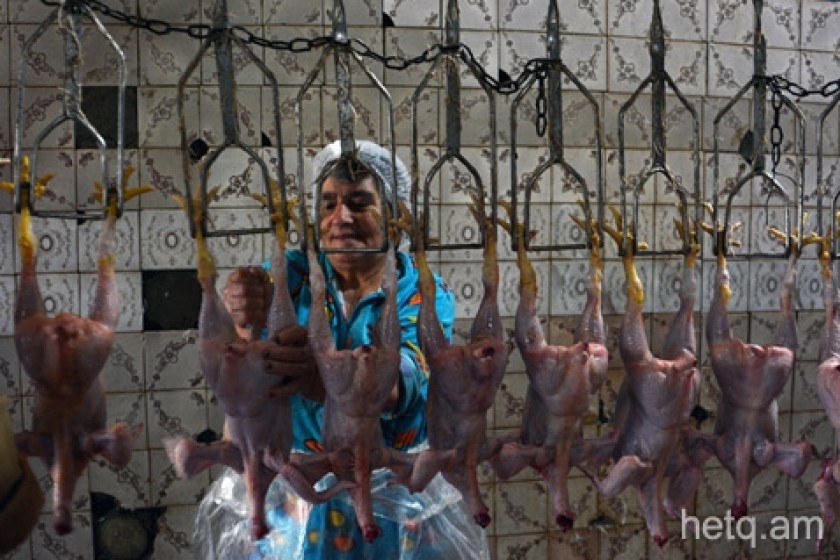
Artsakh Poultry Factory Director: “People are starting to prefer local produce”
Davit Dadayan owns Lousakert Ltd., the company which operates the Martouni Poultry Factory in Artsakh.
The state factory, originally launched in the 1980s, was 50% destroyed during the Artsakh War. It reopened in 2002 when the government sold it off. It had a number of owners over the years until Dadayan purchased it.
Lousakert, which now operates at 75-80% of capacity, monopolizes the poultry processing market in Artsakh.
The company has an annual turnover of US$ 2million.
Each process of the operation is housed in a separate building. Lime is scattered outside the entrances as a sanitary measures. But the odor as one enters really hits you in the face. There’s no doubt as to what going on inside.
The operation, which produces some thirty types of poultry meat, begins in the unit where Mrs. Roza. Every month 23,000 to 27,000 chicks raised in Georgian incubators are brought here to be raised.
“Production levels depend on the season. According to the plan, twice a month we slaughter the birds and refill stock,” Roza says.
Company director Borya Doloukhanyan told me that their products are mostly sold in local markets and those across the border in Armenia’s Syunik Province. He says that the factory doesn’t produce enough for export.
“We don’t sell much throughout Armenia due to cheap poultryimports. It’s not because our products are substandard,” Doloukhanyan explained.
The plant is semi-automated and employees 150 people mostly from Martouni and the surrounding villages of Gishi, Spitakashen and Khnoushinak. A company bus picks up employees in the morning and drops them off in the evening.
The average salary ranges from 60,000 to 70,000 AMD per month. ($145 - $169)
Doloukhanyan says that salaries are increased yearly when conditions permit.
“We would have increased wages further had it not been for the recent price hikes for the incubated eggs, feed and utilities,” he said.
Rita Paramazyan, who works in the packaging unit, says the work is hard and that her crew barely achieves the daily plan.
According to Doloukhanyan, the demand for Lousakert products is rising yearly. More consumers appear to prefer local produce.
WhileDoloukhanyan says that the plant is operating at a profit, the money goes to paying off the bank loans taken out for plant upgrades and to expand the production line.
 Videos
Videos Photos
Photos




Write a comment